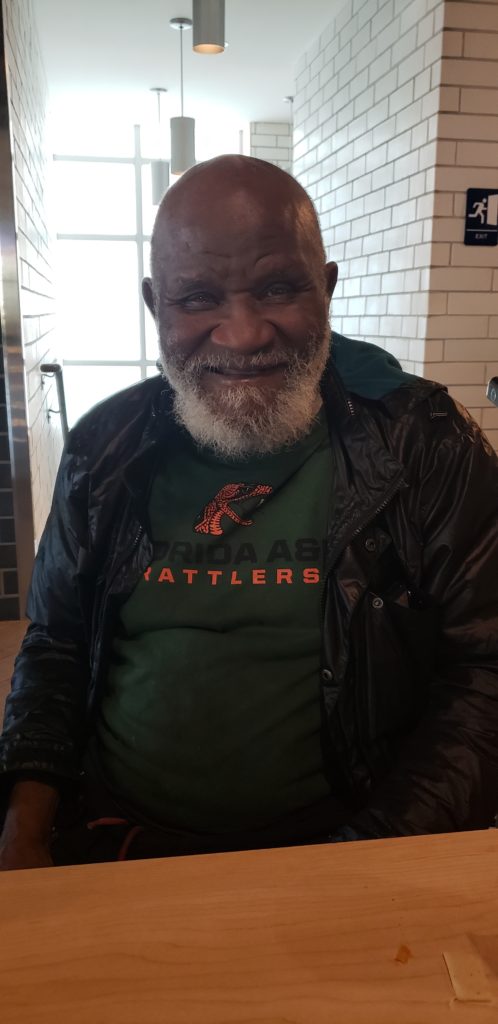Culture | April 3rd, 2020
Civil Rights Painter Plants Roots In Tallahassee
By: Shavez Love

As 86-year-old Leon Hicks thinks back on his storied career as an educator, he comes to terms with the knowledge he passed on.
Affectionately known as ‘Uncle Junior,’ Hicks started teaching art history in the 1960s, at the height of the Civil Rights Movement.
“My passions were art history, art theory, and art criticism.” When asked how he got to where he is, he simply replied, “I love teaching young people. That’s always been who I’ve been.”
As most might consider his achievements as an educator as a big deal, Hicks casually recounts them — a testament to his character.
“I was teaching at Concord University in West Virginia. I integrated the school system there in 1967, and I was the only black living in the town,” he said.
Hicks also recalls how meeting the students there gave him a push to teach anyone who would listen.
“I also integrated the semi Ivy League school of Lehigh University, and they loved me. Not because I was black but because they could relate to me. I wasn’t just teaching 30 students; Thirty people were also teaching me.”
Before teaching, Hicks spent time in the Armed Forces.
“I was a Korean War vet, I went to the Army for three years. I had a chance to meet college graduates. Back then, no matter where you went to college, as a graduate, you had to serve two years,” he said.
Those graduates would push Hicks to explore high education for himself. “They would tutor me on what higher education was all about. I did my undergrad at Kansas University from 1956 to 1959. Afterward, I went to the University of Iowa where I received both an M.A. and M.F.A.”
Hicks received his bachelor’s degree in art sculpture, the M.A in art history and M.F.A in master printmaking.
“The only people who knew I was a master print-maker were my students. I’d been trained by a master print-maker, but I never used it.”
During the early stages of his teaching career, Hicks aimed to understand the sociopolitical landscape that was the backdrop of the art in the era
“I never knew anything about black art. When I integrated Lehigh, it was my first encounter with brilliant minds possessed by young people. My first encounter with perseverant minds was with black heroes that had established a presence in the evolution of America.”
Though his name may not be heralded through history as a civil rights icon, Hicks had his own share of experience with the movement.
“Everyone knows the names: Booker T Washington, [W.E.B] Dubois, Mary McLeod Bethune. I met Miss Bethune when I visited her house, and I only remember that because I didn’t remember anything she said,” he said with a laugh.
He lightheartedly admitted that he fought sleep during his visit but just couldn’t stay awake even in the presence of the soon-to-be historical heavyweight.
Leon Hicks has devoted his entire professional career to cultivating the minds of the next great artists. His passion for the arts has touched countless minds. Even though Hicks no longer lectures, he has been sure to keep an apprentice to carry on his life’s work. Hicks currently runs a studio in Railroad Square Art Park.





